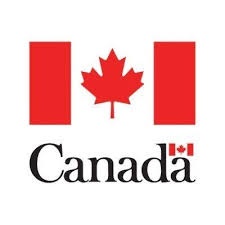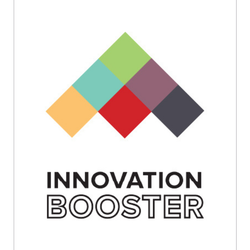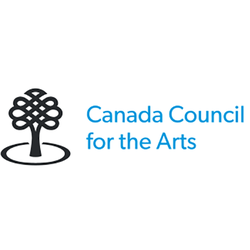
Closed
Youth Employment and Skills Strategy - Canada Summer Jobs Wage Subsidy
Last Update: March 4, 2026
Canada
Supports employers in creating summer jobs for Canadian youth
Wage Subsidies And Interns
At a glance
Funding available
Financing goals
Improve employee retention
Develop employee skills
Eligible Funding
- No Condition
Timeline
- Receipt of requests is now closed
Eligible candidates
Eligible Industries
- Construction
- Educational services
- Health care and social assistance
- Arts, entertainment and recreation
- Accommodation and food services
- Other services (except public administration)
- Public administration
Location
- Canada
Legal structures
- Non-profit
- Public or Parapublic institution
- For-profit business
- Sole proprietorship
Annual revenue
- All revenue ranges
Organisation size
- 50 employees maximum
Audience
- Indigenous Peoples
- Persons with Disabilities
- Language Minorities
- Other Racialized Persons
- Black Canadians
- Rural or Northern Residents
- 2SLGBTQI+
- Canadians
- Youth (<40)
Non-profit candidates
Sector of operation
- Primary and Secondary Education
- Higher Education
- Other Education
- Hospitals and Rehabilitation
- Nursing Homes
- Other Health Services
- Social Services
- Environment
- Economic, Social and Community Development
- Housing
- Employment and Training
- Civic and Advocacy Organizations
- Political Organizations
- Religious Congregations and Associations
- Business Associations
- Professional Associations
- Unions
- Children and Youth Organizations
- Diversity and Inclusion
Target groups
- Children & youth
- Young adults
- Indigenous peoples
- People with disabilities
- LGBTQ+ community
- Rural / Remote communities
- Minority groups
Revenue structures
- Mixed revenue (<50% earned)
Scope
- Local
- Municipal
- Regional
- Provincial
- National
Overview
The Canada Summer Jobs Wage Subsidy program provides wage subsidies of up to 100% of the minimum hourly wage (plus mandatory employment-related costs for not-for-profits) to eligible employers to create quality summer work experiences for youth aged 15 to 30. The funding supports full-time employment projects lasting 6 to 16 weeks between April and August, aimed at skills development and facilitating youth entry into the Canadian labour market.
Activities funded
- Creation of full-time summer employment opportunities for youth aged 15 to 30 in Canada.
- Provision of quality, inclusive, and non-discriminatory work experiences for youth.
- Projects that facilitate skills development and mentorship for youth employees.
- Initiatives supporting youth participation in the Canadian labour market, including those targeting local and national priorities.
- Employment projects that offer supervision, mentoring, and a safe work environment for youth for a period of 6 to 16 consecutive weeks between April and August.
Examples of admissible projects:
$ 8,000
Summer research assistant positions at urban community garden
$ 8,500
Event coordinator position for inclusivity-focused arts festival
$ 12,000
Sixteen-week youth office assistant employment at local legal clinic
$ 4,600
Graphic design intern for public outreach campaign materials
$ 6,500
Maintenance assistant jobs for heritage museum’s seasonal exhibits
$ 8,800
Hiring two youth for summer coding camp instructor roles
Eligibility
- The applicant must be an employer from a not-for-profit organization, a public sector organization, or a private sector organization with 50 or fewer full-time employees across Canada.
- The organization must be registered with the Canada Revenue Agency (CRA) and have a business number.
- The organization must have a CRA payroll deductions program account (RP) prior to hiring youth through the program.
- The proposed project must provide full-time work experience in Canada (30 to 40 hours per week) for a duration between 6 and 16 consecutive weeks, within the specified program dates.
- The work environment must be safe, inclusive, and free from harassment and discrimination, complying with all relevant laws and regulations.
Who is eligible?
- Not-for-profit organizations (including community, charitable, voluntary organizations, faith-based organizations, professional and industrial associations, Indigenous not-for-profits, non-governmental organizations, unions, sector councils, and not-for-profit band councils)
- Public sector organizations (public health and educational institutions, municipal governments and agencies, school boards, territorial governments, public colleges and universities)
- Private sector organizations with 50 or fewer full-time employees (incorporated or unincorporated businesses, partnerships, sole proprietorships, financial institutions, businesses, independent franchise owners, Indian Band corporations, private health and educational institutions, private band councils, private universities or colleges)
Who is not eligible
- Federal government departments and agencies
- Provincial departments and agencies
- Members of the House of Commons or the Senate, or their immediate family members
- Organizations engaged in partisan political activities
- Organizations that directly or indirectly infringe, undermine, weaken, or restrict the exercise of human rights legally protected in Canada
Eligible expenses
- Wages for youth participants, up to the applicable provincial or territorial minimum hourly wage (up to 100% for not-for-profit employers; up to 50% for public and private sector employers).
- Mandatory Employment Related Costs (MERCs) associated with the minimum wage for not-for-profit employers, including Employment Insurance premiums, Canada or Quebec Pension Plan contributions, vacation pay, workers' compensation premiums or equivalent liability insurance, and other relevant statutory deductions depending on the province or territory.
- Overhead costs related to accommodation measures for youth with disabilities, such as personal tools, workplace adaptations, and professional support services, subject to case-by-case approval.
Eligible geographic areas
- Companies established in all provinces and territories of Canada.
- Employment must necessarily take place within Canadian territory.
Selection criteria
- Provision of quality work experiences for youth, including salary above minimum wage, retention plans, and effective supervision (30 points).
- Opportunities for youth to develop and improve their skills, through mentoring and identified skill development outcomes (45 points).
- Alignment with national and local priorities to improve access to the labour market for youth facing unique barriers (25 points).
How to apply
1
Prepare application documents
- Review program objectives, eligibility, and application requirements
- Gather your organization's legal information (business number, contact details, etc.)
- Read the Applicant Guide and Articles of Agreement in full
2
Select submission method
- Determine your preferred submission method: GCOS (recommended), online fillable form, by mail or in person
- Access the application platform or download the appropriate form
- Ensure you possess an RP (payroll) business number from the CRA for GCOS submission
3
Complete the application form
- Complete Part A with employer and organizational details
- Fill out Part B with job-specific information (titles, descriptions, hours, supervision, etc.)
- Indicate funding requested in Part C, including salaries and MERCs (if applicable)
- Attach required supporting documentation as specified
4
Review and finalize application
- Verify that all mandatory fields are filled
- Ensure the attestation is checked and authorized representative information is included
- Print or save a copy of the completed application for your records before submitting
5
Submit the application
- Submit your application via the chosen method before the deadline
- GCOS and online forms generate a confirmation number immediately
- Mail or in-person applicants receive email confirmation within 14 days
- Submit only one application per constituency; do not send duplicates
6
Wait for application results
- After submission, await communication from Service Canada
- Applications are assessed and may be reviewed based on local priorities
- Status notifications sent starting April 2025; decisions are final with no appeal
Additional information
- Employers and youth participants funded through Canada Summer Jobs may be required to complete feedback questionnaires regarding their experience.
- Successful employers may be randomly selected for inspections or audits, where financial documentation and interviews with participants could be requested.
- Some employer and project details, such as organization name and funding amount, will be posted publicly on government websites if funding is approved.
- Employers must ensure privacy and health and safety requirements are met, including compliance with all applicable laws and regulations.
Apply to this program
Frequently Asked Questions about the Youth Employment and Skills Strategy - Canada Summer Jobs Wage Subsidy Program
Here are answers to the most common questions about the Youth Employment and Skills Strategy - Canada Summer Jobs Wage Subsidy. This section explains what the program is, how much funding is available, eligibility requirements, application deadlines, and other important details to help you determine if this grant is right for your business.
What is the Youth Employment and Skills Strategy - Canada Summer Jobs Wage Subsidy?
Who is eligible for the Youth Employment and Skills Strategy - Canada Summer Jobs Wage Subsidy program?
What expenses are eligible under Youth Employment and Skills Strategy - Canada Summer Jobs Wage Subsidy?
Who can I contact for more information about the Youth Employment and Skills Strategy - Canada Summer Jobs Wage Subsidy?
Where is the Youth Employment and Skills Strategy - Canada Summer Jobs Wage Subsidy available?
Is the Youth Employment and Skills Strategy - Canada Summer Jobs Wage Subsidy a grant, loan, or tax credit?
Who are the financial supporters of the Youth Employment and Skills Strategy - Canada Summer Jobs Wage Subsidy?
Apply to this program
More programs like this

Grant and FundingClosed
Industrial Research Assistance Program (IRAP) – AI Assist
Supports Canadian SMEs in adopting and integrating advanced AI solutions

Grant and FundingOpen
International Single Sport Events - Hosting Program
Supports hosting international single sport events in Canada

Grant and FundingClosed
Canada Public Transit Fund
Supports long-term public transit and active transportation infrastructure development

Grant and FundingClosed
Creative Export Canada (CEC) — Export-Ready Stream
Funding for Canadian creative industry exports


Grant and FundingClosed
Explore and Create — Concept to Realization
Financial support for creative projects

Researchers And FacilitiesPartnering and CollaborationWage Subsidies And InternsOpen
Mitacs Accelerate
Connect organizations with academia for research and innovation collaboration

Grant and FundingClosed
Canada Service Corps – Service Placements Regional Stream
Funding for organizations to develop youth volunteer service placements

Grant and FundingOpening Soon
International outreach — Travel
Empower Canadian artists and arts organizations to expand global connections and opportunities

Grant and FundingClosed
ISED — Artificial intelligence (AI)
Supports testing innovative AI prototypes for Canadian government needs
Sign up to our platform to access the Youth Employment and Skills Strategy - Canada Summer Jobs Wage Subsidy information sheet for free
Get access to 10,000+ programs, practical guides, personalized alerts, and an AI assistant to support your grant applications.